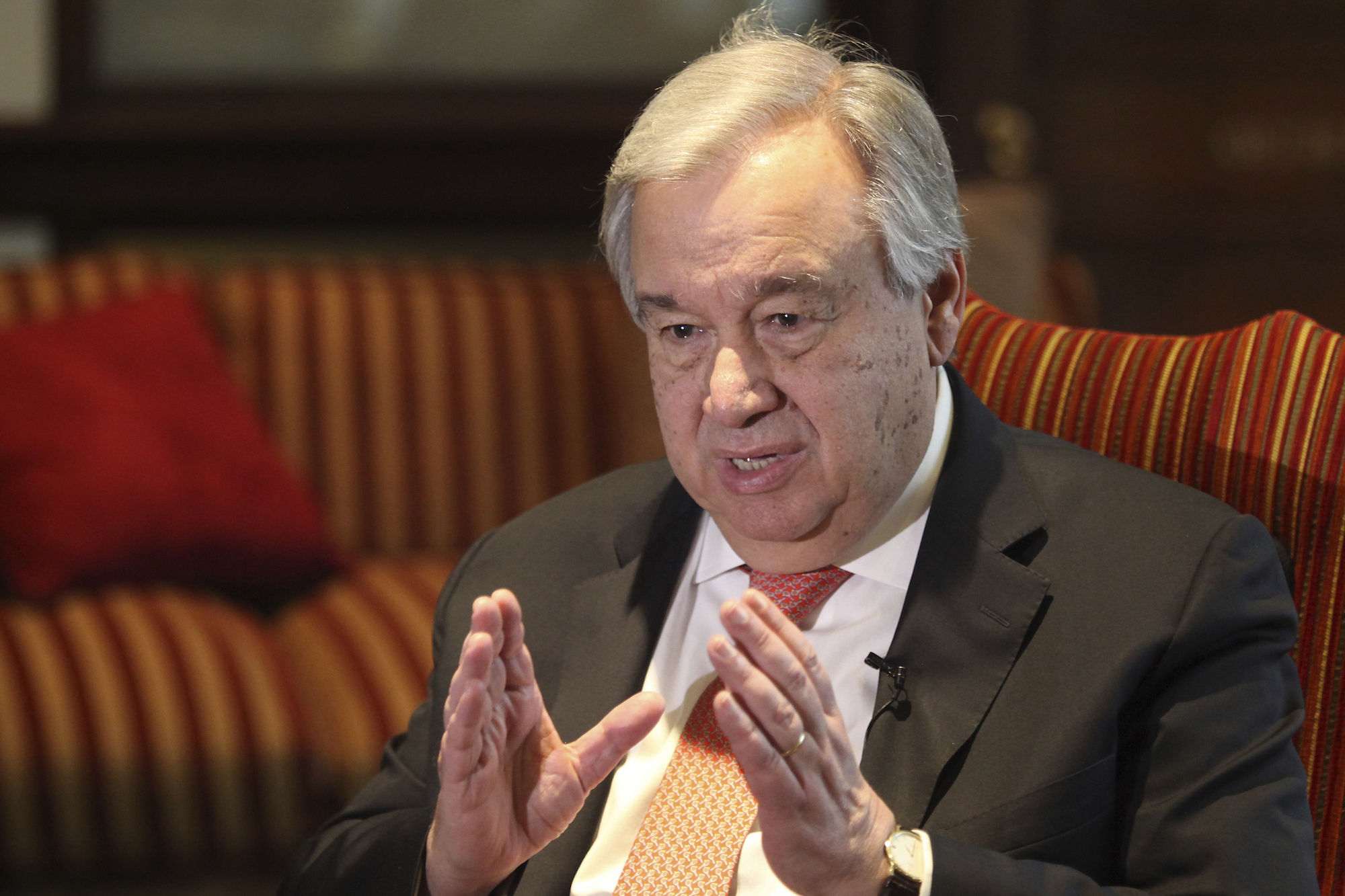The United Nations Treaty on the Prohibition of Nuclear Weapons will enter into force on Jan. 22, 2021, after Honduras became the 50th nation-state to ratify the agreement on Oct. 24. Before commencement, the treaty needed to reach the established threshold of 50 ratifications.
The 50 parties in the agreement—among them Mexico, Nigeria, Austria, Vietnam, South Africa and Cuba—commit to “never under any circumstances…develop, test, produce, manufacture, otherwise acquire, possess or stockpile nuclear weapons or other nuclear explosive devices.”
Honduras’ scale-tipping ratification came on a historic date, namely the 75th anniversary of the ratification of the United Nations Charter, which established the UN in 1945.
In a statement, UN Secretary General Antonio Guterres stated the treaty’s entry into force is “a meaningful commitment towards the total elimination of nuclear weapons, which remains the highest disarmament priority of the United Nations.”
The effort against nuclear weapons is led by the International Campaign to Abolish Nuclear Weapons (ICAN), a coalition of non-governmental organizations that received the 2017 Nobel Peace Prize for its activism.
Setsuko Thurlow, an ICAN activist and survivor of the 1945 nuclear bombing of Hiroshima, shared her reaction on the Peace & Health Blog for the International Physicians for the Prevention of Nuclear War website. “When I learned that we reached our 50th ratification, I was not able to stand,” Thurlow stated. “I remained in my chair and put my head in my hands and I cried tears of joy.”
“For the victims and survivors, this initial success with the Treaty on the Prohibition of Nuclear Weapons is tremendously uplifting,” Thurlow wrote. “I celebrate this moment with my brothers and sisters across the world who have been victimized, and still raise their voices, and still survive.”
Others also praised the treaty’s entry into force. Peter Maurer, president of the International Committee of the Red Cross, also praised the treaty’s entry into force, calling it “a victory for humanity” and “a promise of a safer future.” In recent weeks, Pope Francis also championed the cause for prohibition.
Despite the celebrations by opponents of nuclear weapons, the treaty is not expected to have much immediate effect, since it only applies to states who have ratified it. No nuclear powers have signed on to the agreement and no member states of the North Atlantic Treaty Organization openly support it.
The five nuclear powers, recognized by the 1970 Nuclear Non-Proliferation Treaty, lead opposition to the ban: the United States, Russia, China, the United Kingdom and France.
The U.S., especially, lobbied against ratification. A U.S. letter obtained by AP News, prior to the prohibition treaty’s entry into force, called on signatories to reverse their “strategic error” of supporting the pact, arguing that it would undermine the existing Non-Proliferation Treaty already joined by 190 states.
ICAN’s executive director Beatrice Fihn dismissed this argument brought forth by the U.S. by citing the 50-year-old treaty itself. “There’s no way you can undermine the Nonproliferation Treaty by banning nuclear weapons,” Fihn explained. “It’s the end goal of the Nonproliferation Treaty.”
The Non-Proliferation Treaty has been in force since 1970. It recognized the five nuclear powers as “nuclear-weapon states” while prohibiting all other states who are parties to the treaty from acquiring nuclear weapons. In exchange, the nuclear powers agree to share technological knowledge for the peaceful use of nuclear energy. The Treaty also commits the parties to “pursue negotiations in good faith…on a treaty on general and complete disarmament” regarding nuclear weapons.
Despite firm opposition by the nuclear powers, more nation-states could ratify the prohibition treaty. In addition to the 50 current parties, 34 more have signed, but not yet ratified, the treaty—among them Brazil, Indonesia, the Philippines, Kenya and Libya.
In 2017, the UN General Assembly resolution to begin negotiations for the treaty gained the support of 122 member states, including Iran, which has been slowly building up its nuclear capabilities after the U.S. withdrawal from the Iran Nuclear Agreement, according to a report issued by the International Atomic Energy Agency in March 2020.
Within the U.S., there are also local governments who back prohibition of nuclear weapons in spite of the opposition by the federal government. In 2019, both the Portland City Council and the Oregon Legislature issued declarations in support of the Treaty on the Prohibition of Nuclear Weapons and called on the U.S. government to join it.
Nuclear disarmament activists are confident their efforts are not in vain, even without the formal signatures of nuclear-weapons states. They hope that growing support for the ban of nuclear weapons could stigmatize their use and gradually lead to their prohibition.
“They know that even if it doesn’t bind them legally, it has an impact,” ICAN Executive Director Fihn said about the effects of the treaty on the nuclear powers. “Nobody’s immune to peer pressure from other governments.”
